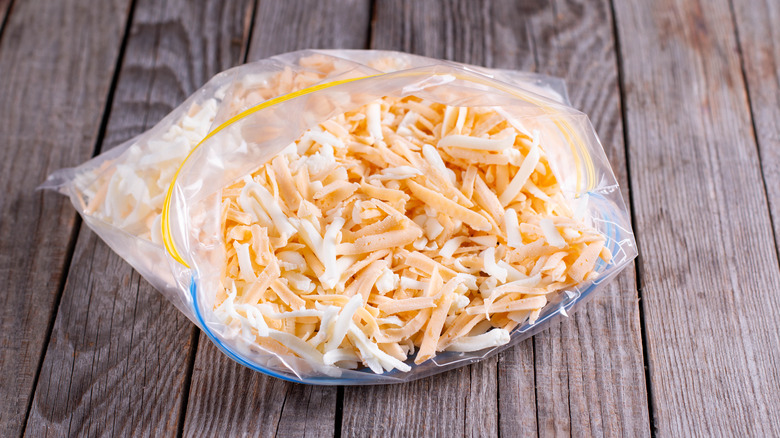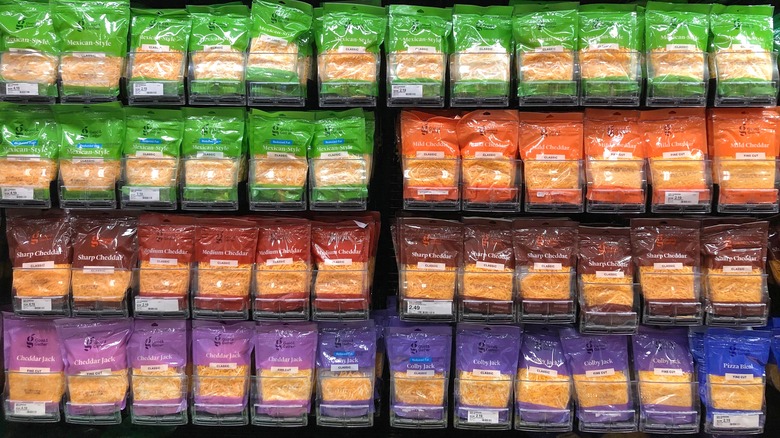How To Thaw Frozen Cheese So It Still Tastes Fresh
Sometimes trying to finish a wheel of brie or a log of goat cheese before it goes moldy can feel like a race against the clock. Once opened, a lot of cheeses have a pretty short shelf life. But you don't want to simply chuck that half-eaten block of cheddar that's been sitting in your fridge for a week. So what do you do? In a lot of circumstances, you can freeze your cheese. But you'll need to thaw it after freezing to get the best use out of it.
When frozen, the water and fat in your cheese will crystallize, which irreparably changes the flavor and texture of the cheese. So you should be careful about selecting the cheese you want to freeze, and how you plan to use it. To thaw your cheese, move your airtight container from the freezer to the fridge where it should sit overnight, so it has time to rehydrate and regain some of its original texture. If your cheese is shredded (which we'd recommend for freezing), you can also simply melt it from frozen and skip this step.
How to freeze and thaw cheese
When freezing cheese, you want to package it in as airtight a way as possible. A double wrapping of parchment paper and aluminum foil will work, as will vacuum sealing, but a Ziploc bag will work fine for most household uses. Shredding or grating your cheese using a hand grater or a shredder attachment on a food processor is a great option for freezing cheese.
Pre-shredding or grating your cheese speeds up the thawing process and makes it easier to use. A solid block of cheddar will take a couple of days to thaw in the fridge and may be difficult to cut, but shredded frozen cheese can be used immediately out of the freezer if you plan to melt it on hot dishes (which you should), like pasta, pizza, a panini, or a bowl of French onion soup. When thawing frozen cheese, you should use it as quickly as possible to preserve its flavor. And definitely don't try to re-freeze it! Instead, just freeze your shredded cheese in whatever portions you'll need, so you don't have to unfreeze it all in one go.
What cheese can I freeze?
Hard and semi-hard aged cheeses are the best for freezing, as they have a lower water content than young, soft cheeses and won't suffer as much textural damage. (This is the same reason why many aged cheeses don't need to be stored in the fridge). Cheeses that are good for freezing include cheddar, Swiss, Monterey Jack, Parmesan, Pecorino Romano, and provolone. Certain types of mozzarella can be frozen, too, but it freezes better in shredded form as shredded mozzarella has a lower water content than fresh. (You definitely shouldn't be trying to freeze a liquid-filled ball of burrata).
Cheeses that are not so well suited for freezing are soft cheeses like goat cheese, brie, or Camembert (though cream cheese does freeze well despite its soft texture). They will develop an unpleasant crumbly texture and don't thaw well.
Blue cheese is also not great for freezing, as it will kill the mold that gives the cheese its funky flavor. So make sure that Roquefort doesn't go to waste!



